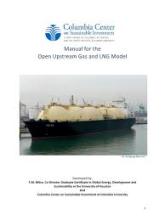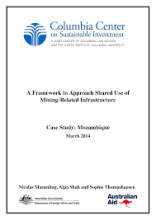Land Library Search
Through our robust search engine, you can search for any item of the over 73,000 highly curated resources in the Land Library.
If you would like to find an overview of what is possible, feel free to peruse the Search Guide.
/ library resources
Showing items 1 through 9 of 10.This note proves recommendations for governments, international actors, and mining advocates who seek to optimize the value of green energy mineral reserves, to ensure that expectations for green energy materials do not replace careful planning, impact assessment, and allocation of risks, as well
The USAID's Investor Survey on Land Rights aimed to provide a more systematic understanding of the drivers of tenure risk to land-based investments from the perspective of the private sector, and of how investors and operators assess, mitigate and are affected by such risks.
This manual has been developed for training purposes. It models the gas value chain from the upstream project to the use of gas under the form of LPG, LNG or as feedstock for local industrial or power generation uses.
This paper provides guidance on how to integrate consultation and FPIC principles into investor-state contract negotiations to actively involve project-affected communities and better safeguard their land rights and human rights.
This guide discusses USAID’s recommendations for best practices related to the due diligence and structuring of land-based investments, with the goal of reducing risks and facilitating responsible projects that benefit both the private sector and local communities.
Guest commentary by Robert Oberndorf, Resource Law Specialist, Tenure and Global Climate Change Project.
A guest post by Robert Oberndorf, Resource Law Specialist, Tenure and Global Climate Change Project. Recent rapid changes in Burma have led to concerns related to the land tenure and property rights (LTPR) of smallholder farmers and communities throughout the country.
The framework provides guidance to policy makers on how to approach the question of shared use.
Property rights are inexorably linked to taxes, largely because property taxes are often one of the easiest taxes to collect, particularly in developing markets with significant informal sectors.







